- Home
- Mallory Kane
Death of a Beauty Queen Page 4
Death of a Beauty Queen Read online
Page 4
“I’ll do it!” she screamed, her eyes glittering wildly. “I’ll call 911. I’ll tell them you assaulted me!” She turned toward a table on the opposite side of the room, near the piano, and Dixon saw the telephone there. Her purse was sitting next to it. He beat her to it.
“Okay,” he said, holding up his palms. “You’ve had a shock tonight. I’ll leave, for now.”
He stayed between her and the telephone as he glanced inside her purse. “But first, I’m going to give you my cell phone number. Okay?” He eyed her carefully.
Her eyes were still wild and her face was unbearably pale except for the pink splotches, but she didn’t move as he dug in her purse.
“That’s my—” she started, but he silenced her with a gesture.
“All I’m going to do is call my number from your phone. Then you’ll have my number and you can call me if you need me, okay?”
She put her fingers to her left temple and rubbed, squinting at him. “I want you to go!” she said, her voice rising again.
“Okay, okay.” He touch-dialed his number on her
keypad, then hit the stop button once his phone began to ring. “There,” he said, pitching his voice low. “Now you have my number and I have yours. Listen to me, Rosema—Rose. Remember my name. It’s Dixon. Dixon Lloyd. I’m not here to hurt you. I want to protect you. I want to help you find your way home.”
Her face changed so abruptly that Dixon was afraid she was going to faint again. The fear and agitation drained away. Her eyes softened and filled with tears. She pressed her hands together, prayerlike, and touched her fingertips to her lips.
“Find my way home?” she whispered.
Chapter Three
Home. The word from the detective’s mouth penetrated like a ray of light into Rose’s clouded heart. For an instant, hope blossomed in her chest.
“Home,” she mouthed, afraid to actually put voice to the word again, lest saying it might destroy it.
Then she met Dixon Lloyd’s gaze and saw a glint of triumph lighten his dark blue eyes. He was playing on her emotions, trying to catch her off guard.
She straightened and lifted her chin. “I am home. I don’t want your help and—” she drew in a breath that caught in a sob “—and I don’t need your—protection.” She crossed her arms. “I want you to get—out!”
She dug her short fingernails into her arms and glared at him until he lowered his gaze and dropped her cell phone back into her purse. He looked at her again, started to speak, then apparently thought better of it. He walked past her out of the living room.
His footsteps echoed and faded as he descended the stairs. For a couple of seconds, there was silence. Rose stiffened and held her breath, listening, until she heard the front door open and close. She let out a careful sigh, and winced as the throbbing in her head flared again.
He’d nearly caught her off guard with his clever mention of home. But how? Why had the word affected her so? What she’d told him was true, as far as it went. Maman’s house was her home. It had been for the past twelve years.
But before that…
Rose closed her eyes against the pulse that beat painfully in her temple. She needed to follow Detective Lloyd and make sure he’d left, then lock the door and put the chain on, but she couldn’t face the stairs. The headache was making her feel light-headed. She needed a migraine pill.
She made her way to her bedroom and swallowed a tablet without water. Turning out the light, she lay on the bed in the dark for a few minutes until the pounding in her head ebbed from horrific to nearly bearable.
Finally, shading her eyes with her hand, she forced herself to stand and make her way carefully down the stairs.
When she checked the door, she found that the detective had thrown the latch. She locked the dead bolt and put the chain on, then slowly climbed the stairs again. She made her way into the kitchen. She fumbled in the cabinet for a box of crackers and grabbed a soda from the refrigerator. She took the food into her bedroom, where she forced herself to eat the crackers and drink a few sips of soda. The chilled cola eased her stomach a bit. She lay down and tried to relax, but she wasn’t strong enough to hold the nightmare memories at bay.
Rissshhhh, rozzzzzsss. Rissshhhh, rozzzzzsss. The whispers took eerie, ghost-like form and swirled around her like banshees. Blood fell like rain, washing over her vision and bringing with it the sharp, bright glint of light on slashing metal.
She moaned and covered her head with a pillow.
A long time later, the silvery flashes faded along with the whispers, and Maman’s soothing voice slid into her dreams, soothing the pounding in her head and erasing the vision of the slashing, searing knives.
* * *
DIXON WALKED AROUND the outside of Rose’s home, assuring himself that all of her lights were out. He glanced at his watch. It was only eight-thirty. He waited a few more minutes, to be sure she hadn’t turned them out in preparation for going out. But the house remained dark and quiet.
When he’d come down the stairs, he’d expected her to be nipping at his heels, making sure he left. But she hadn’t followed. He didn’t like that she’d trusted him to leave.
However, because she hadn’t followed him, he’d had a couple of seconds to check out the official-looking form he’d noticed on the foyer table when he’d first come in. He’d scanned it quickly, with the help of the high-
intensity laser light on his keychain. The form was a permit renewal for a vendor space on St. Ann Street, signed by Rose Bohème.
The name on the form was Renée Pettitpas, but the renewal date was after Maman Renée’s death. A thrill ran through him as he realized what he was looking at. He glanced back toward the stairs, then back to the form.
Judging by the diagram, the space appeared to be right in front of the praline shop. Dixon had walked by that small square of land dozens, maybe scores of times in the past twelve years. Had Rose been there every time? How had he not noticed the beautiful black-haired gypsy reading her tarot cards or holding a customer’s palm?
He was at once gratified and disappointed that he hadn’t sensed her there. Disappointed because he might have been able to close her case years earlier, but gratified that he wasn’t so in tune with Rosemary Delancey that he could have actually sensed her presence in the middle of bright, busy Jackson Square.
Now he reluctantly headed for his Dodge Charger. He felt an irritating compulsion to stay all night and watch over her. Her reaction to his questions about her attack had worried him. But when she’d threatened to call 911, he’d been forced to acknowledge that the last thing he wanted was to find himself explaining to local uniformed police why he was harassing her.
And for damn sure he didn’t want Ethan to know what he was doing. Rosemary Delancey was his partner’s first cousin, and in his family’s minds, she’d been dead for twelve years. Dixon didn’t want to give them false hope or listen to Ethan telling him how gullible he was to believe a broken-down addict looking to score a few perks in prison.
He was going to need more proof than her terror and his obsession before he turned the Delanceys’ lives upside down. He tried not to think about what he was doing to her carefully insulated life.
Glancing back at the house once more, he noticed that the faded sign was rocking slightly in the wind. Maman Renée, Vodun, Potions, Fortunes.
Rose had lived here, safely hidden away. It was arrogant to assume that now that he’d found her, she wouldn’t be safe without him.
* * *
FIFTEEN MINUTES FROM the time he drove away from Renée Pettitpas’s two-story shotgun house, Dixon was sitting on the cracked, uneven patio of the home he’d bought out of foreclosure four years ago. He’d finally decided two things at age thirty-two: he wasn’t the marrying kind, and renting was like tossing his money into the Mississippi River.
He leaned back in the teak chair and took a sip of the brandy he’d chosen instead of a beer.
He swirled the snifter, admiring i
ts amber color in the reflection of the goldfish pool lights. Amber—the color of Rosemary Delancey’s eyes.
He’d stood in front of her less than an hour ago, and yet now, the whole experience almost seemed like a dream. He closed his eyes, trying to conjure up the vision of her at twenty-two. The girl whose image had soaked into his brain like her blood had soaked into the hardwood floor of her apartment. But that innocent, smiling girl no longer existed.
Now all he could see was midnight-black hair, shocking in contrast to her dark red brows, the ugly scar that only made her face more interesting and fascinating, the casual flowing clothes that he was sure Rosemary Delancey, debutante and Carnival Queen, had never even considered wearing.
He shifted in his chair and reached for his wallet.
“No,” he said out loud, stopping himself. He stood and picked up the jar of fish food sitting on the glass-topped table beside him.
“Here you go, Pete, Louie. Remember I told you about Rosemary Delancey?”
Louis Armstrong and Pete Fountain, his goldfish, were much more interested in the food he tossed them than his conversation.
“Come on, Louie, you remember. My first homicide. She was the Carnival Queen?” He took a sip of brandy, trying to forget about the photo in his wallet. He didn’t want to look at her twenty-two-year-old face. He was no longer obsessed with that girl anymore. That pretty debutante was dead.
“You ought to see her,” he told Louis. “She walks like she’s on a runway. Her hair is black as night, but those eyes…” He held up the glass of brandy. “See how the pool lights hit the brandy? That’s the exact color of her eyes.”
Louis gulped down the last of the food floating on the surface of the pool, turned sideways and gave Dixon a sour look, then headed for deeper water.
Pete was still swimming around, looking for one more morsel. Dixon was pretty sure Pete wouldn’t appreciate hearing about Rose Bohème’s attributes. She was already jealous of Louis. As if she could hear Dixon’s thoughts, Pete flipped her tail and disappeared beneath the
philodendron leaves that floated on the pool’s surface.
He smiled wryly and finished his brandy. “Don’t be jealous, Pete. I doubt you’ll have to worry about her. You’ll probably never meet her.”
His cell phone vibrated in his pocket. His pulse jumped. Could it be Rose calling him? But when he looked at the display, he saw that it was Ethan.
He sighed and answered. “Hey, what’s up?” He really didn’t want to go out on a job this late. Not when he planned to be up before dawn tomorrow.
“Nothing,” Ethan said, and Dixon breathed a sigh of relief.
“I just wanted to double check about the time tomorrow.”
“Time?” he echoed as he turned off the pool lights and headed inside.
“Were you asleep?” Ethan asked.
“No. What about the time?”
“The Saints’s scrimmage? That you wanted to go to?” Ethan said. “Don’t tell me you forgot.”
“The—” Dixon stopped. He had forgotten. “Sorry, I can’t go,” he said. “Something’s come up.”
Ethan was quiet for a split second. “Something’s come up since this morning?” he snapped. “What the hell?”
Dixon thought fast. “It’s Dee. She needs me to—to move some stuff.” He winced. He didn’t like lying to his partner, but what was he going to tell him? I’ll be busy chasing down a lead on your dead cousin? Yeah, that would work.
“Right. Your sister is insisting that you change your plans to help her. That’s so like Dee,” Ethan said flatly. It wasn’t a question. It was a very sarcastic, disgusted statement.
“Come on, Ethan. You ought to understand family. Dee didn’t insist. She just looked so disappointed.” It was a low blow, playing the family card, but Dixon knew it would work with Ethan.
Another second of silence. “Yeah. Fine. I’ll see if Harte wants to go.”
“Why don’t you take that girl you’ve been dating?” Dixon suggested, hoping to redirect Ethan’s ire.
“Why don’t you mind your own business?”
Dixon laughed. “Uh-oh. Trouble in paradise. What’d you do? Make her get her own drink?” Ethan had been going out with the daughter of a prominent New Orleans attorney. He’d complained about her being high-
maintenance.
“No. I didn’t do anything.”
“She doesn’t like football, does she?”
Ethan muttered a curse word. “If it’s not cappuccino or designer shoes, she’s not interested. Have fun moving furniture.”
“Yeah,” Dixon said, and started to hang up, then he thought of something. “Hey, Delancey,” he said. “When your cousin died, she was living in her own apartment, right?”
“Dix, really? More questions about Rosemary? That T-Bo really got under your skin, didn’t he?” Ethan sighed. “Yes, she was living in her own apartment. Why?”
“I was wondering if there was any friction between her and her parents. Was that why she left home?”
He heard Ethan sigh. “I have no idea. Anything else?”
“Nope,” Dixon said and hung up. He scrubbed a hand down his face as he set the phone on its charging station. Eventually he was going to have to tell Ethan that his cousin Rosemary was alive and living less than six blocks from where she was attacked.
Dixon headed through the kitchen to his bedroom. He needed to get to sleep. It was after ten, and 5:00 a.m. would come way too soon.
Once in bed, he tried to clear his mind so he could fall asleep, but just as he was about to drift off, the vision of the twenty-two-year-old Carnival Queen rose in his inner vision, then slowly, it morphed into the fascinatingly beautiful face of Rose Bohème.
Gone was the pretty debutante who’d haunted him for twelve years. It was Rose Bohème, the woman, who needed him now. He would be there tomorrow, in Jackson Square. And tomorrow he wouldn’t miss her. Now that he’d found her, he didn’t plan to let her out of his sight until he’d solved the mystery of her apparent return from the dead.
* * *
ROSE GOT HER table set up by six o’clock. Today she was thankful that she’d crisscrossed the tiny table’s top with ribbons to hold the tarot cards in place. The forecast only foretold a thirty-percent chance of rain, but it was already cloudy and the wind was blowing.
She’d braided her hair this morning, but a braid wasn’t going to cut it if the wind kept up, so she tucked the fat coils into a knit beret and anchored it with bobby pins. Over the years she’d learned not to mind having her face exposed. Only a very few rude people and children asked about the scar. The children didn’t bother her. She explained to them that she’d had a bad accident many years ago.
Once she got her hair anchored, she pulled her wool knit shawl closer around her. Even in New Orleans, late-October mornings were chilly. She shivered and felt in her skirt pockets for her cold-weather gloves. She slipped them on, thankful that she’d tucked them there the previous weekend.
After her nightmarish night, she was lucky she’d made it here at all, much less remembered everything.
She rubbed her temple and pushed away the disturbing images from her dreams. Nights were bad enough since Maman had died. She was not going to let the visions and the voices intrude upon her days.
At least she’d gotten rid of that rude bully of a detective. Once she’d threatened to call 911, he’d beat feet out the door. It made her wonder if he was really a policeman at all.
An arrow of fear pierced her chest. Dear God, that must be it. He wasn’t really a detective. Sure, he’d showed her a badge, but she had no idea whether it had been real or not.
Her hands shook as she pulled the shawl closer around her. Whom had she let into her home? Whom had she allowed past the protective barrier Maman had provided so that Rose could feel safe?
Suddenly, she felt her careful control draining away. The faceless, nameless terror loomed—rissshhhh, rozzzzzsss, rissshhhh, rozzzzzsss. Only it was no longer fac
eless or nameless. The terror had blue-black hair and deep blue eyes. And its name was Dixon Lloyd.
“Yo, Mama. Hey?”
She jumped at the familiar voice. She blinked and realized she was staring at the tarot cards. She looked up.
It was Diggy Montgomery, a kid who danced on the street corner near her. “You okay?” He made a funny hip-hop gesture with his hands.
“I’m fine,” she said, dredging up a smile for him. “I like your hat.”
“Yeah.” He took it off and twirled it, then seated it back on his head. “I found it over on Canal. Blew off some rich dude’s head I bet. Wan’ some coffee?”
“I would love some,” she said, digging into her skirt pocket. She always gave him five dollars for a large cup of café au lait from the Café du Monde and never asked for change. His mother was a waitress there and she was pretty sure he got the coffee for nothing, but she didn’t care. He put sugar in it and brought it to her. That alone was well worth five bucks.
When he returned, he had the coffee plus a small paper bag. “Here you go, Mama. Enjoy.”
“Diggy, wait. Take another dollar,” she called, but he just executed a flawless circle, doing things with his sneaker-clad feet that she wouldn’t have believed could be done. Then he tipped the fedora, gave her a cocky grin and a mock salute, and said, “Naw, sugar. You look cold. Eat yo’ beignet. ’S all good.”
“Thank you, sir,” she said, smiling. “Come back later and I’ll read your cards.”
He shook his head as he sashayed to his corner, tossed the hat onto the ground to collect tips and started his moves.
The tourists who were out this early were more interested in their places in line at the Café du Monde than getting their fortunes told, but Rose figured by noon, if it didn’t rain, she’d have more business than she could handle. After all, it was the week before Halloween. Between now and the first of the year was her most lucrative time.
* * *
DIXON PUT THE hood of his sweatshirt up and huddled in line, waiting for his turn to elbow his way up to the counter and get his café au lait. He wanted to sit down and have a plate of beignets, but he was anxious to find Rosemary.

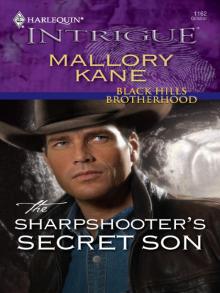 The Sharpshooter's Secret Son
The Sharpshooter's Secret Son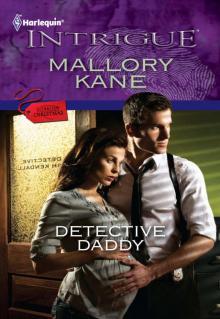 Detective Daddy
Detective Daddy Special Forces Father
Special Forces Father Blood Ties in Chef Voleur
Blood Ties in Chef Voleur A_Father's Sacrifice
A_Father's Sacrifice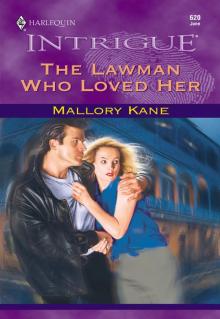 The Lawman Who Loved Her
The Lawman Who Loved Her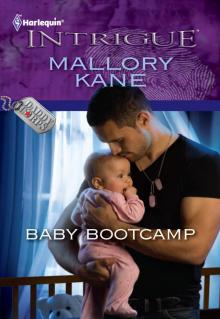 Baby Bootcamp
Baby Bootcamp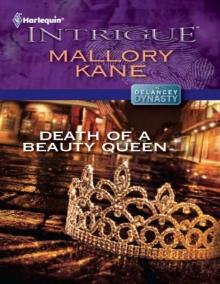 Death of a Beauty Queen
Death of a Beauty Queen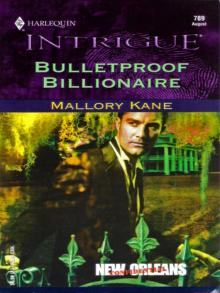 Bulletproof Billionaire
Bulletproof Billionaire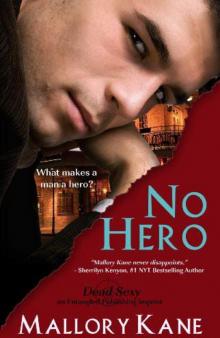 No Hero
No Hero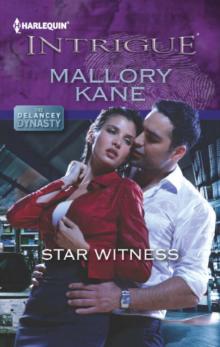 Star Witness
Star Witness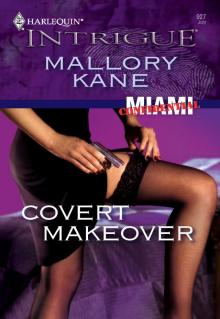 Covert Makeover
Covert Makeover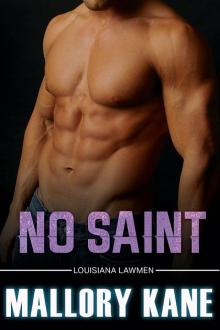 No Saint
No Saint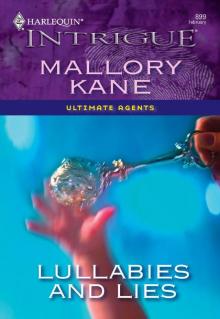 Lullabies and Lies
Lullabies and Lies The Colonel's Widow?
The Colonel's Widow?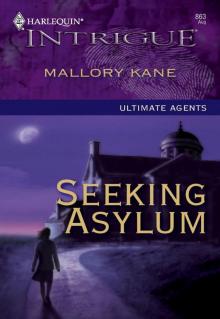 Seeking Asylum
Seeking Asylum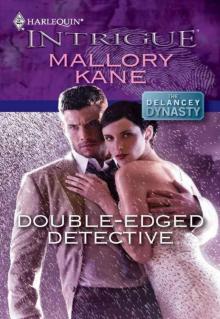 Double-Edged Detective
Double-Edged Detective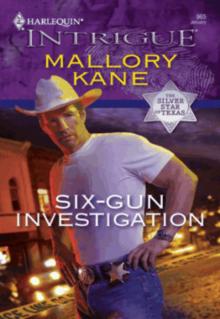 Six-Gun Investigation
Six-Gun Investigation His Best Friend’s Baby
His Best Friend’s Baby Her Bodyguard
Her Bodyguard Bodyguard/Husband
Bodyguard/Husband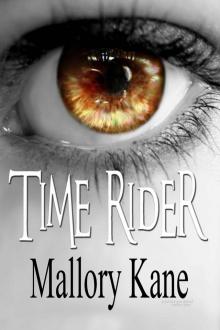 Time Rider (Rise of the Skipworths)
Time Rider (Rise of the Skipworths) It's In His Kiss
It's In His Kiss Ultimate Agents - High School Reunion
Ultimate Agents - High School Reunion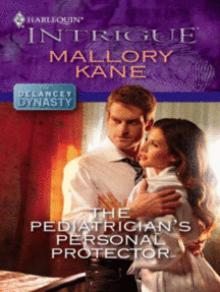 The Pediatrician's Personal Protector
The Pediatrician's Personal Protector Private Security
Private Security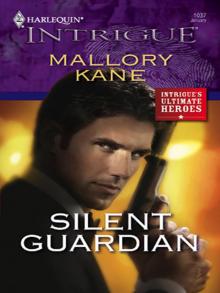 Silent Guardian
Silent Guardian September Rain
September Rain Heir to Secret Memories
Heir to Secret Memories High School Reunion
High School Reunion